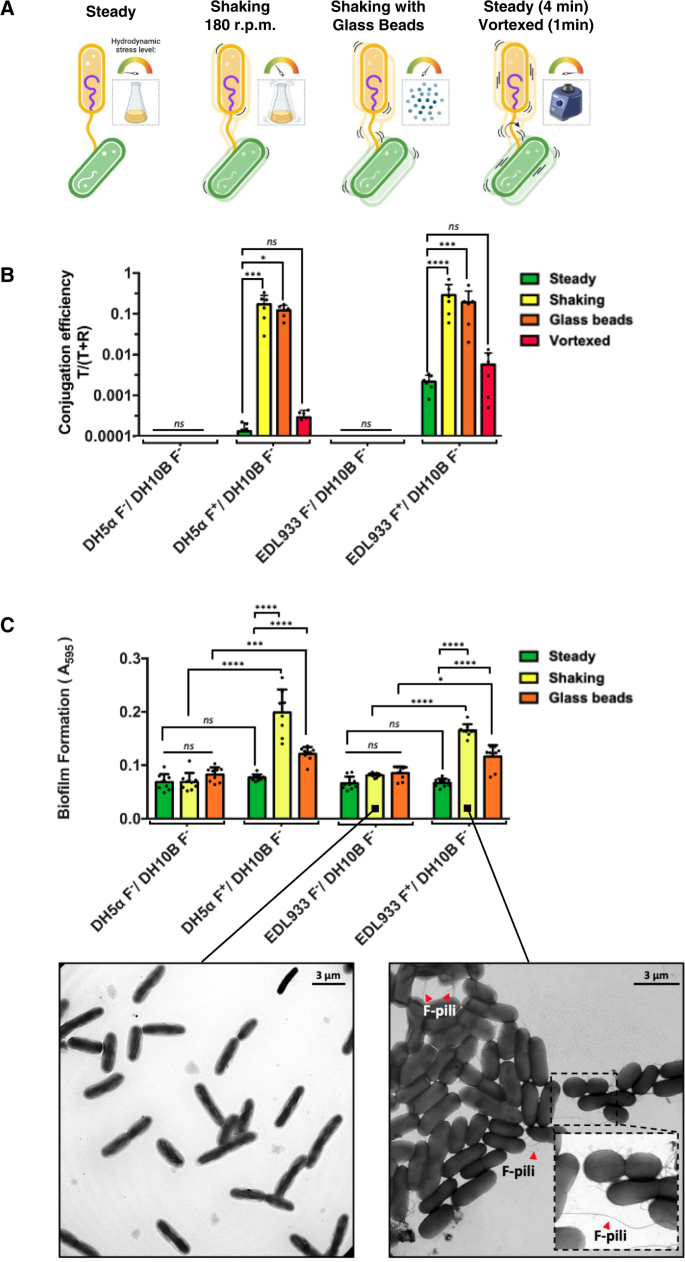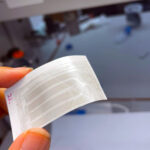2023-04-21 インペリアル・カレッジ・ロンドン(ICL)
薬剤耐性菌が転移するのに使う超高分子構造物は、将来の医薬品において正確な薬剤投与に利用できる可能性がある。抗微生物薬耐性による死亡者数は、2050年までにがんと同じくらいになると予想されており、この傾向に対処するためには新しい戦略が緊急に必要である。
<関連情報>
- https://www.imperial.ac.uk/news/244513/gut-bacteria-super-polymers-dodge-antibiotics/
- https://www.nature.com/articles/s41467-023-37600-y
F-pilusの生体力学的適応性は、抗菌剤耐性菌の共役拡散とバイオフィルム形成を促進する。 The F-pilus biomechanical adaptability accelerates conjugative dissemination of antimicrobial resistance and biofilm formation
Jonasz B. Patkowski,Tobias Dahlberg,Himani Amin,Dharmender K. Gahlot,Sukhithasri Vijayrajratnam,Joseph P. Vogel,Matthew S. Francis,Joseph L. Baker,Magnus Andersson & Tiago R. D. Costa
Nature Communications Published:05 April 2023
DOI:https://doi.org/10.1038/s41467-023-37600-y

Abstract
Conjugation is used by bacteria to propagate antimicrobial resistance (AMR) in the environment. Central to this process are widespread conjugative F-pili that establish the connection between donor and recipient cells, thereby facilitating the spread of IncF plasmids among enteropathogenic bacteria. Here, we show that the F-pilus is highly flexible but robust at the same time, properties that increase its resistance to thermochemical and mechanical stresses. By a combination of biophysical and molecular dynamics methods, we establish that the presence of phosphatidylglycerol molecules in the F-pilus contributes to the structural stability of the polymer. Moreover, this structural stability is important for successful delivery of DNA during conjugation and facilitates rapid formation of biofilms in harsh environmental conditions. Thus, our work highlights the importance of F-pilus structural adaptations for the efficient spread of AMR genes in a bacterial population and for the formation of biofilms that protect against the action of antibiotics.


